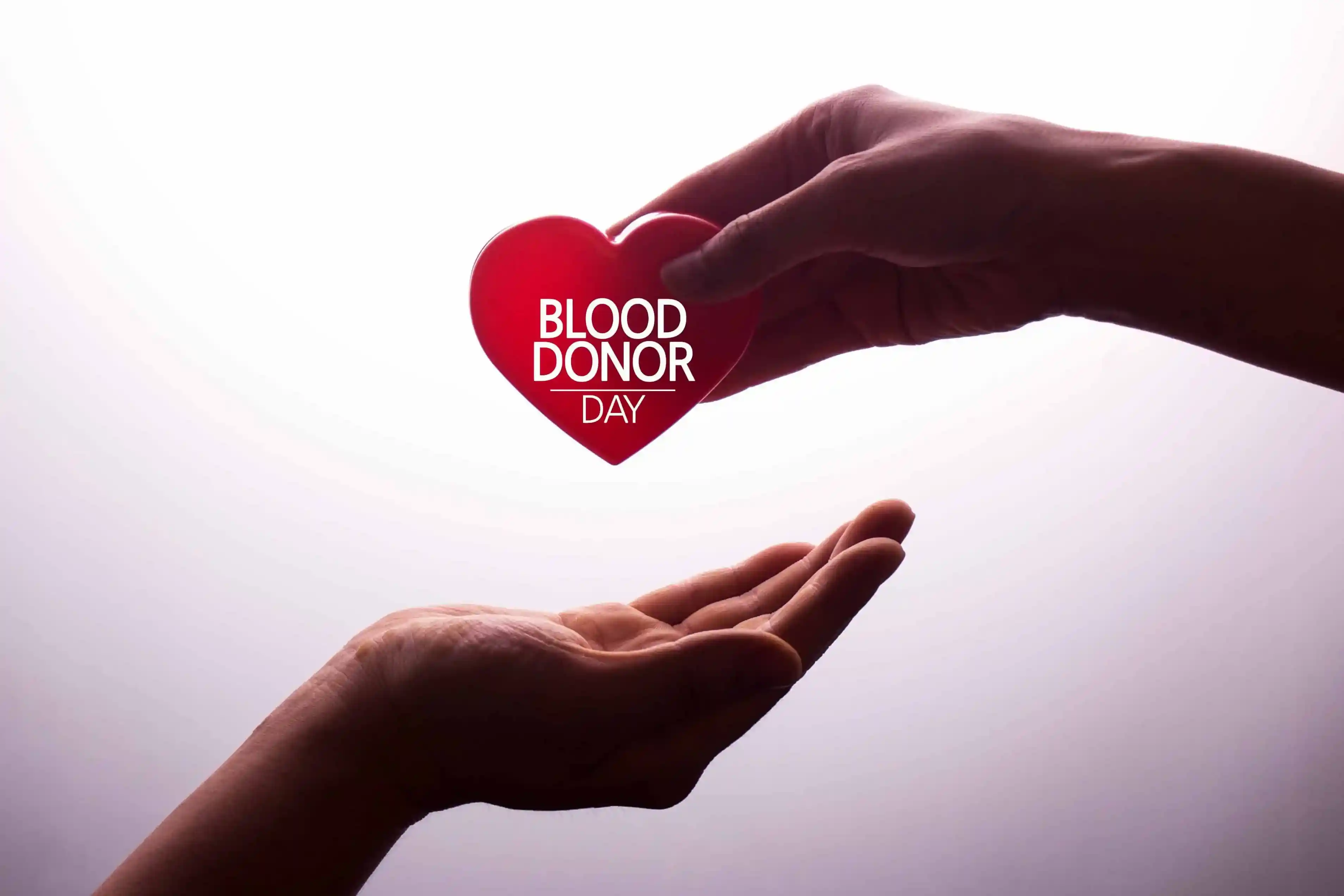The Red Lifeline
While the world is about giving and receiving, a few givings are unconditional, something non-existent in a pragmatist society. 14th June is celebrated to honour this unconditional service rendered to society in the form of blood as a gift of life.

A gift of life; Source: Awareness Days
Which is the most important fluid? While most of us might say water, the red liquid, one that makes the vampires lick their tongues is as important to life as water is. Think of all those action-thriller movies and the blood gushing out of people to depict the significance the blood holds in life. While in the movies the sauce or a dark concentrated liquid can make our day, in reality, the loss of blood can be fatal.
Blood is important because it carries oxygen to and carbon-di-oxide away from the tissues of the body. It circulates in the veins and arteries of the vertebrates. Imagine all the blood that is moving inside you right now! In essence, blood contains 55% water along with other disseminated nutrients. It is essential for the body framework and looks after our homeostasis.
Given that life is a dangerous affair and that we all are mortal puny humans, it is no big deal that if you lose 3 litres of the 6-litre blood that your body holds, you will die of exsanguination.
This is where donors come as saviours. Unlike our varied DNA, humans have only eight different types of blood groups that can be shared amongst each other. 14th June is a day of celebration of the Blood Donors, to mark their contribution and encourage others to do the same.
The history of blood donation goes further back than what one might expect.
It began in the seventeenth century when the English were in the middle of a Civil War, the Irish were rebelling, Dalai Lama was sweeping power in Tibet, a seven-year-old was becoming a sultan when some medical specialists found out that blood was important and losing too much of it could lead to some tragic consequences.
Then began the age of experimentations. With it emerged a brand of heroes who donated their blood, so that others can live longer. The blood donors save lives every single day by giving away a part of themselves so that an unknown person in an accident or a transfusion surgery could live.
Like every new thing, the first transfusions were poorly understood, the science behind them was basic which resulted in some unprecedented circumstances. Richard Lower was the first scientist to examine blood circulation in animals and find ways to stop the blood from clotting. While he was only working with animals, in one of his experiments, he managed to drain blood out of a dog and then transfused the blood of a bigger dog in the smaller dog. Both the dogs recovered and showed no apparent symptoms of anything, whatsoever.
Next, came the experiment to transfer animal blood into humans. This was a big move and suffered outright rejection on the forefront due to superstitions and morally rigid authorities. The practice was outlawed and vanished for almost a century and a half.
In 1818, one obstetrician brought back blood transfusion into modern medical technology when he saved a woman who had suffered a haemorrhage after childbirth. He soon published works on his success and dedicated his life to blood transfusions. He performed ten transfusions, out of which five of the recipients of blood survived.
In recent times, blood donation and receiving has become very easy with better technology and storage available. It is more or less a few hours task at the best. Yet its significance has only increased with time.
The World Health Organization declared this day as World Blood Donor Day in 2012. Since then WHO spearheads the celebration every year.
A gift of blood is a gift of life. In the modern world, different elements of the blood can be separated and given to patients as per their needs. 14th June is celebrated to raise awareness of the need for safe blood and thank voluntary and unpaid blood donors for their life-saving donations.


